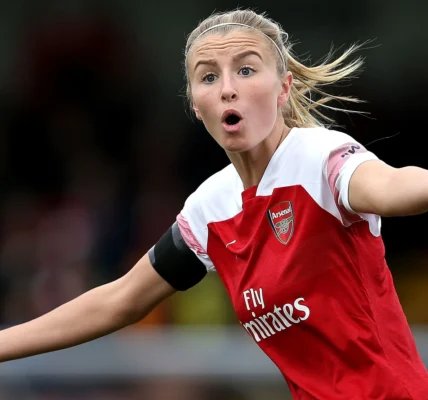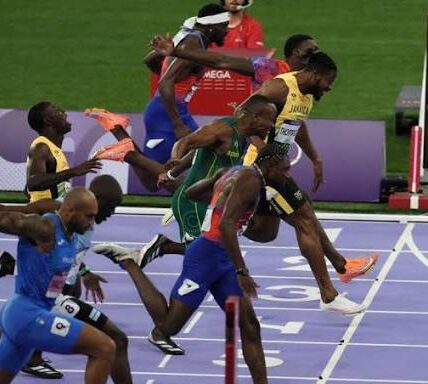Busang Collen Kebinatshipi’s historic 400m win in Tokyo and what it means for Botswana.
If you want a shorter version or with quotes, I can do that too.
Kebinatshipi Makes History: Botswana’s First Men’s World Champion with 400m Win in Tokyo
On a rainy evening at the 2025 World Athletics Championships in Tokyo, 21‑year‑old Busang Collen Kebinatshipi delivered a landmark performance, becoming the first man from Botswana ever to win a world title.
The occasion was doubly sweet: Kebinatshipi not only claimed gold in the men’s 400 metres, he also set a national record in doing so. (Anadolu Ajansı)
The Race & Performance
Kebinatshipi ran a scintillating 43.53 seconds in the final.
That time was not only a national record for Botswana, it also placed him among the top times globally in the event. (Anadolu Ajansı)
In the semi‑finals, he had already stirred notice by running 43.61 seconds, showing that he was peaking at the right moment. (The Japan Times)
In the final, the conditions were tough — rain and a wet track. Despite that, Kebinatshipi ran smartly.
As other runners—including South Africa’s Zakithi Nene, who came out fast—began their fade, Kebinatshipi paced himself, held his form through the curve, and unleashed enough strength in the final straight to hold off a hard‑charging field. (Reuters)
Trinidad and Tobago’s Jereem Richards claimed silver in a national record of 43.72 seconds, while Bayapo Ndori of Botswana surged to grab bronze at 44.20.
So Botswana enjoyed not just one but two medals in this final, with Ndori securing a podium spot. (Reuters)
Other finalists included Rusheen McDonald of Jamaica in fourth, and South Africa’s Nene slipped back to fifth. (BusinessLIVE)
Why This Win Matters
This gold medal represents a historic breakthrough for Botswana.
It is the first time a male athlete from Botswana has become a world champion in an individual men’s event. (Africanews)
The accomplishment signals several things:
-
Emergence of a new elite sprinter: Kebinatshipi has been steadily improving, but this final performance under pressure shows he has both speed and tactical awareness.
-
At 21, there is likely more to come. (The Japan Times)
-
Depth in Botswana’s sprinting: With Ndori also getting bronze, Botswana showed it has multiple athletes capable of competing at the highest level in the 400m.
-
This bodes well for relays, team morale, and future championships. (BusinessLIVE)
-
Inspiration and national pride: Records were broken, expectations were exceeded. For a country that has had strong relay performances and Olympic appearances, this establishes a new individual standard. It may inspire younger athletes and increase investment in athletics.
-
Rewriting the landscape: Some of the favourites and previous medallists were either absent, injured, or eliminated.
But Kebinatshipi seized the opportunity, showing that even without big names in the final, the field is competitive and that new names can rise. (BusinessLIVE)
Kebinatshipi: The Athlete Behind the Moment
Collen Kebinatshipi (full name Busang Collen Kebinatshipi), born in 2004, had shown promise in junior ranks and as part of Botswana’s relay squads.
He was part of the silver‑medal winning 4×400m relay team for Botswana at previous major events. (Wikipedia)
Heading into these Worlds, he was not among the absolute favourites.
Some more established 400m runners—Olympic medallists and former world podium finishers—were expected to dominate.
But Kebinatshipi’s steady progress, culminating in this national record run, confirms his arrival on the global stage. (The Japan Times)
In his own words after the finish, the win felt “crazy,” acknowledging both the gravity and personal significance of the achievement.
He admitted that heading into the semi‑finals he had doubted himself, but in the final he let out everything he had. (The Japan Times)
The Numbers & Records
Here are some key stats:
Performance |
Time |
|---|---|
Kebinatshipi’s final time |
43.53 seconds (Botswana national record) (Anadolu Ajansı) |
Silver (Jereem Richards, T&T) |
43.72 seconds (also a national record for Trinidad & Tobago) (Anadolu Ajansı) |
Bronze (Bayapo Ndori, Botswana) |
44.20 seconds (Anadolu Ajansı) |
Kebinatshipi’s semi‑final time had already shown his capacity, with 43.61 seconds. That indicated he was in fine form coming into the final. He improved on that when it counted most. (The Japan Times)
Looking Forward
With this win, several questions and possibilities open up:
-
Can he sustain or improve? The 400m is brutal—injury risk, fatigue, mental pressure. Kebinatshipi’s development path will need careful management. If he continues, he could challenge continental records and move higher in the all‑time rankings.
-
Relay potential: Botswana now has two medalists in the 400m final this year, plus other strong quarter‑milers.
Their 4×400m relay prospects look promising.
-
A strong individual post can raise the level of the whole squad.
-
Athletics infrastructure and support: Success often leads to greater investment in coaching, facilities, youth programmes.
-
This could be a pivotal moment for Botswana’s athletics governance and support systems.


